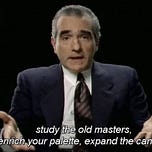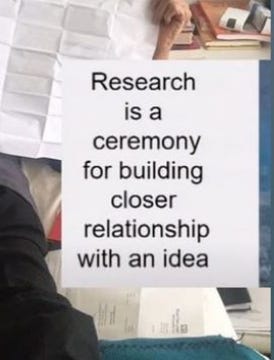Welcome to our second installment of sublimatrix: a Matrix of Destiny cipher. Here’s our first edition, ICYMI.
Today, I want to introduce you to the Matrix of Destiny energy and archetype of five (5). But before I do, I just want to express my humble gratitude to all who’ve been patrons of this project so far. It’s remarkable to be able to research, think, write, and edit at whatever pace each archetype requires, and I’m so grateful for your support as I do that!
Five is close to my heart, and I think it gets an unfair reputation for being a stodgy old traditional asshole. So, consider this my op-ed to embrace the weirdness, the dorkiness (complimentary), the earnestness that comes along with 5 in the Matrix of Destiny.
In true 5 practice, this is a long and winding tale. Pull up your Matrix of Destiny, pour yourself a glass of something refreshing, and wander with me into the annals of 5 energy.
"Tradition is not the worship of ashes, but the preservation of fire."
— Gustav Mahler
THE EXPERIENTIAL SYLLABUS FOR ENERGY 5: THE TEACHER
There's something almost painfully fitting about attempting to capture the essence of the number 5 in words — a medium that 5 would absolutely obsess over getting just right. Every time I sit down to describe this energy, I feel the passion of every teacher I’ve ever known (both living and dead, physical and theoretical). I get a little emotional when I tap into the purity behind the motives of any good teacher: Everything, everything is for the sake of sharing knowledge to make the world a better place.
The word Hierophant (the 5 in the tarot) means “Shower of Mysteries.”
Perhaps because 5 will happily dance in a torrential downpour of mysteries to solve… or because 5 is meant to show the way, pull the velvet curtain back on the wisdom that feels elusive and out of reach.
And so, this whole thing is a little ~meta~ as I spent many many weeks writing this, trying to perfect it, trying to pass along knowledge perfectly to you.
Ultimately, I had to channel the light side of the 5 archetype: don’t get caught up in your ego and communicating “perfectly,” trust that the essence of knowledge will shine through.
So here we are, attempting to dissect the energy that literally wrote the book on how knowledge should be transmitted. The Hierophant (or the Pope!) in the Tarot. The Teacher in Matrix of Destiny. The walking, breathing manifestation of "Well, actually..." but in the most necessary way possible. [In an age of disinformation, we need 5s to correct the ledger]
The 5 is one of two teacher archetypes in the Matrix of Destiny, and I’ve found that when I read for people with 5s in their charts this revelation mostly gets a negative response. Sometimes read as “Tradition,” the 5 can have a sort of school marm-y connotation. It’s easy to disregard 5 as stodgy, outdated, disciplined, conservative, perhaps even religious, because this is how it’s often interpreted in the Tarot.
Now, I don’t think that’s fair. In fact, it kind of makes me ache a little when I hear someone bemoan the 5 in their chart, because in my mind it’s one of the most beautiful gifts you could hold. And sure, every archetype has a shadow side, and out-of-balance effect, but the 5? When it finds equilibrium, goddamn is it a beaut.
I can’t think of a better example of a balanced 5 than my high school English teacher. His classroom was a haven. Even though we were 15, he treated us like adults. He had a infinitely refilling pot of coffee, styrofoam cups, and a Costco-sized powdered Coffee Mate set up in the back of the room at all times — we could help ourselves to as many cups of burnt bean water as we liked, and he’d even top off our cups himself as we sat in a circle and debated the merits of last night’s assigned reading.
It was sophomore year, so we had a cast of heavy hitters: Beowulf, Canterbury Tales, Lord Jim, Heart of Darkness, Madame Bovary, Jane Eyre, Macbeth, The Tempest, Sir Gawain and The Green Knight. A lesser guide would have stuck to the script. But not him — he assigned readings from the Buddha and we spent weeks discussing the meaning of suffering, and how it related to Lord Jim. We read The Art of Loving by Erich Fromm and talked about the nature of healthy relationships as we side-eyed Jane and Mr. Rochester. I vividly remember him drawing Plato’s Cave on the whiteboard for one class, while my comrades argued over whether those of us in the classroom had escaped The Cave or not.
This man changed my entire worldview, and also somehow convinced me to memorize T.S. Eliot. He wouldn't let you get away with a half-assed paper, not because he enjoyed your suffering, but because he genuinely believed you could do better — and that doing better really mattered for your personhood.
If we’re lucky, we get to experience this shining example of a 5 at least once in our lives. The thing about 5 is that when it's working well, it's utterly essential — a beautiful bridge between the past and future, carrying torch flames of knowledge through time.
But when it's not working well, which, unfortunately, many of us have experienced either through teachers, managers, parents, or (eek) ourselves? It becomes that person who insists "This is how we've always done it" while the building literally burns down around them. Tradition for tradition’s sake. Like your parent still refusing to use a smartphone while simultaneously complaining that no one calls them anymore.
The 5 energy exists at this exquisite tension point where preservation meets evolution. It's Dead Poets Society's Mr. Keating tearing out textbook pages while simultaneously teaching students to love ancient poetry. It's the millennial librarian figuring out how to archive TikToks for future generations while wearing vintage cardigans without a trace of irony.
At its core, philosophy is the ultimate expression of 5 energy — the structured examination of knowledge itself. Epistemology, ethics, logic — these are all attempts to create coherent systems for understanding and transmitting wisdom.
What I find most compelling is how philosophical traditions simultaneously value both preservation and questioning. The Socratic method, for instance, is a tradition of systematic doubt — a structured approach to challenging assumptions that has itself been preserved for millennia.
I think about this whenever I find myself caught between reverence for established wisdom and the impulse to question everything. But I think that inherent tension is a feature, not a bug. 5 energy at its healthiest contains both the respect for what has come before and the courage to ask whether it still serves truth.
In our current moment of information overload and "alternative facts," 5 energy is more threatened but more necessary than ever. We need systems for evaluating, preserving, and transmitting reliable knowledge. But those systems must remain flexible enough to evolve, to incorporate new discoveries, to correct past errors.
The challenge facing each of us is to find our own relationship with 5 energy is to determine which traditions truly serve wisdom and which merely serve the status quo. To decide what knowledge is worth preserving and passing on, and what needs to be respectfully laid to rest. To recognize that sometimes the most reverent act is to update rather than merely repeat. To understand that we are all, whether we recognize it or not, both students and teachers in an unbroken chain of human knowledge.
So here's our challenge: how do we honor the structured, organized, hierarchical nature of 5 while ensuring it doesn't calcify into that teacher who's been using the same yellow lecture notes since 1977? How do we recognize that sometimes traditions persist because they genuinely work, without becoming the person who reflexively blocks innovation because "that's not how we do things"?
Let's try to understand this complex energy — one that both lovingly creates the syllabus and occasionally needs to throw it dramatically out the window. The energy that reminds us that you need to learn the rules before you can effectively break them. The energy that knows all too well that information without context is just noise, but context without adaptability is just a museum exhibit nobody visits.
Welcome to the paradox that is 5: the energy that lives to preserve knowledge and must constantly question whether what it's preserving still matters.
Listen to this episode with a 7-day free trial
Subscribe to sublimatrix — a Matrix of Destiny cipher to listen to this post and get 7 days of free access to the full post archives.








